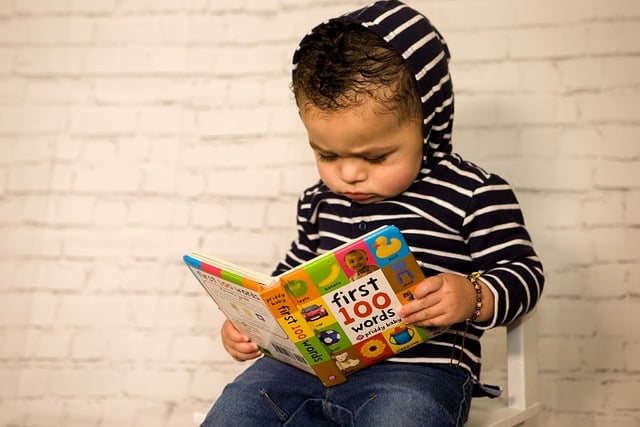Designing Activities to Support Literacy Development in the Early Childhood Classroom
 Early literacy #development is a cornerstone of success for young learners, providing the foundation for communication, critical thinking, and academic achievement. Early childhood #educators #play a critical role in fostering literacy skills through engaging, purposeful activities that promote reading, writing, speaking, and listening. Here’s how you can design effective literacy activities that captivate young minds while meeting #developmental goals.
Early literacy #development is a cornerstone of success for young learners, providing the foundation for communication, critical thinking, and academic achievement. Early childhood #educators #play a critical role in fostering literacy skills through engaging, purposeful activities that promote reading, writing, speaking, and listening. Here’s how you can design effective literacy activities that captivate young minds while meeting #developmental goals.
Why Early Literacy Matters
Literacy development begins long before children start school. From recognizing sounds and letters to understanding stories and expressing ideas, #early-literacy shapes how children interact with the world. By intentionally incorporating literacy-rich activities into the #classroom, #teachers can help children:
- Develop vocabulary and #language-skills.
- Build phonemic awareness and phonics knowledge.
- Cultivate a love for reading and storytelling.
- Strengthen fine motor skills through writing and drawing.
Strategies for Designing Literacy Activities
1. Create a Literacy-Rich Environment
A #classroom-environment that encourages literacy can inspire children to engage in reading and writing naturally. Consider these tips:
- Set up a cozy reading corner with a variety of #books that reflect diverse #cultures and interests.
- Label classroom items (e.g., "chair," "door") to promote word recognition.
- Display children’s writing and drawings to celebrate their efforts.
2. Incorporate Play-Based Learning
Young children learn best through play. Integrate literacy into activities that feel fun and interactive:
- Storytime Adventures: Read aloud with animated voices and props to make stories come alive.
- Alphabet Hunts: Hide letters around the classroom and encourage children to find and match them.
- Role-Playing Games: Set up a “post office” or “library” where children can practice reading and writing.
3. Use Multi-Sensory Approaches
Engaging multiple senses can enhance learning and retention. Try activities that combine visual, auditory, and tactile elements:
- Sand Writing: Have children trace letters in sand or shaving cream.
- Letter Sound Songs: Sing songs that emphasize letter sounds and rhymes.
- Story Sequencing: Provide picture cards for children to arrange in the order of a story.
4. Encourage Emergent Writing
Writing is a key component of literacy. Help children build confidence by providing opportunities for creative expression:
- Journals: Offer blank journals for children to draw and write their thoughts.
- Word Walls: Create a wall of frequently used words for children to reference.
- Name Practice: Help children write their names using stencils, markers, or finger paints.
Professional Development for Literacy Instruction
Teachers can enhance their understanding of literacy strategies through specialized training. ChildCareEd offers courses like “Classroom Tools for Emergent Literacy” that provide actionable insights for designing impactful literacy activities. Explore CDACertification’s CDA trainings and begin your journey to earning your CDA Credential.
Resources for Classroom Success
To implement effective literacy activities, educators can access practical tools and resources:
- Printable Activity Guides: Check out ChildCareEd’s resources for downloadable literacy activities.
- Expert Articles: Read this article on promoting literacy through play to discover more creative ideas.
Inspiration from Social Media
Stay inspired by following ChildCareEd on platforms like Instagram and Pinterest. For example, this Pinterest board is filled with creative literacy activity ideas, from DIY word games to storytelling #crafts. Social media offers a wealth of inspiration for hands-on, engaging literacy activities.
Sample Literacy Activities to Try
Here are some ready-to-use ideas for supporting literacy development in your classroom:
- Interactive Storytelling: Use puppets or flannel boards to retell favorite stories, encouraging children to participate.
- Word Building with Blocks: Provide lettered blocks for children to form words while practicing their fine motor skills.
- Rhyming Bingo: Create a bingo game where children match rhyming words.
- Daily Journaling: Set aside time for children to draw pictures and dictate or write short stories about their day.
Conclusion
Designing activities that support literacy development doesn’t have to be complicated. By creating a literacy-rich environment, using play-based learning, incorporating multi- #sensory approaches, and encouraging emergent writing, you can inspire young learners to develop essential skills. For more ideas and support, explore the professional development courses and resources available at ChildCareEd and CDACertification. Follow ChildCareEd on Instagram for ongoing inspiration and tips to make literacy learning both meaningful and fun.